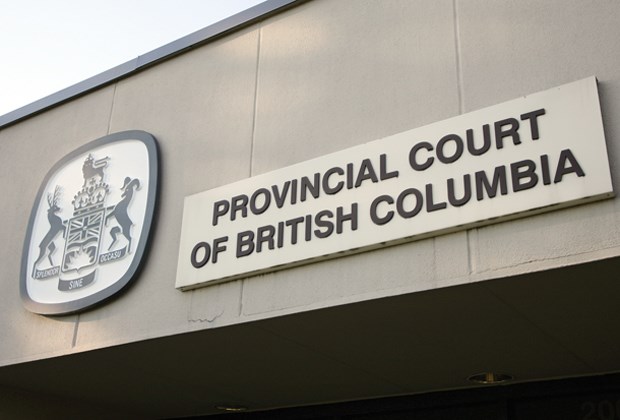One of three charges faced by an RCMP officer accused of drunk and reckless driving was dropped this month after a judge ruled the police investigation infringed on his rights.
Sgt. Victor Cunha careened into a median on Highway 1 near the Caulfeild exit shortly before midnight on Nov. 30, 2012, later trying to drive away despite having lost a wheel, according to a witness.
Cunha, the head of the RC MP's Lower Mainland explosives disposal unit, was charged with dangerous and impaired driving stemming from the crash. But a third charge of driving with a blood alcohol content higher than .08 was tossed after Judge Steven Merrick of the
North Vancouver provincial court ruled a blood sample should not be admitted as evidence in the trial.
Merrick ruled West Vancouver Police Const. Arman Sardari was not diligent enough in asking if Cunha wanted to consult a lawyer. The judge also ruled the officer did not have reasonable grounds to request a blood sample and that the officer had not checked to make sure the breathalyzer was working properly.
Cunha crashed while driving back from dinner in Squamish, where he drank wine. Cunha was aggressive and "all over the road," as he headed east on Highway 1, according to witness Brendan Grills, who testified earlier in the trial.
West Vancouver Police Department Const. Matt Plant, the first officer to arrive on the scene, testified Cunha said: "I tried to kill myself."
When asked if he wanted to consult a lawyer, Cunha responded, "No, not at this time," according to Sardari.
But Sardari "ought to have known" that Cunha's response was equivocal and at minimum sought clarification, according to Merrick.
The breach of Cunha's rights are "rooted in ignorance of charter standards which comes close to bad faith. There is certainly an absence of good faith," Merrick wrote in his decision.
Complications around the blood sample began when a technician at Lions Gate Hospital refused a police request to draw Cunha's blood. A doctor eventually drew the blood.
But Merrick ruled the blood sample should not be admitted, because the grounds for taking it were based on inaccurate and misleading, information offered by Sardari.
Under cross-examination from defense lawyer Michael Klein at the trial, Sardari reversed his earlier description of Cunha slurring his words and swaying.
Inconsistencies in Sardari's account "demonstrate a carelessness with the truth," according to Merrick. The judge added Cunha's symptoms of impairment could also have been caused by being knocked unconscious in the car accident.
Excluding the blood sample was necessary to retain both individual rights and the reputation of the criminal justice system, according to Merrick.
Sardari took a breath sample from Cunha shortly after the crash. However, the breathalyzer needs to be between 10 and 40 degrees Celsius to get a reliable reading. Sardari didn't recall the temperature that evening, but testified he always ensures the temperature is within the correct range. But Merrick ruled that wasn't good enough.
The trial continues in court Nov. 17.



